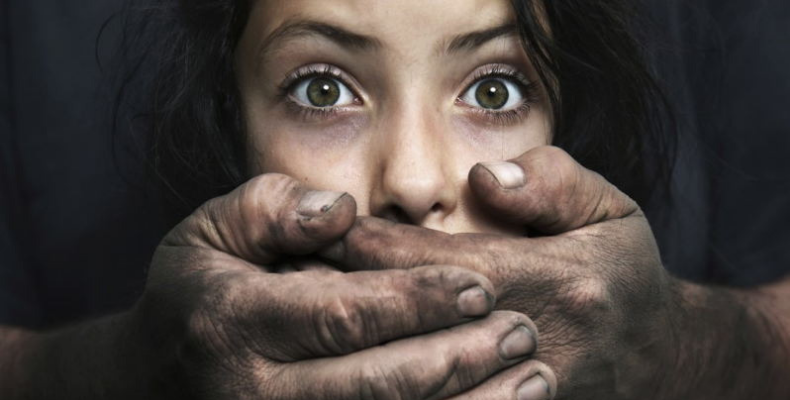Yesterday it came to light that a swimming coach by the name of Surajit Ganguly was filmed molesting a 15-year-old girl in Goa. The video was recorded on a mobile phone by the girl herself, as proof of a crime that has allegedly been happening for over 6 months now. The coach and the girl are originally from Bengal. Surajit Ganguly was initially employed on contract, but according to Swimming Federation of India president Digambar Kamat, he was confirmed as a regular coach at Peddem, Mapusa, on the request of the parents because he was a good coach. The girl who was in Bengal was asked by the coach to come stay and train in Goa, but 6 months after moving here, she insisted on moving back to her hometown. It’s only after having moved back to Bengal that her parents pressed her for information, and she revealed all the details. The incident filmed was taken at the sports complex accommodation in Peddem.
Surajit Ganguly is currently on the run. An FIR has been filed, and a case has been registered under IPC sections 376 (rape), 354 (molestation) and 506 (criminal intimidation). In addition to that, a case has also been registered under the Protection of Children from Sexual Offences Act or the POCSO Act, and the Goa Children’s Act. The POCSO Bill includes the death penalty for aggravated assault on children, besides providing stringent punishments for other crimes against minors.
What is the POCSO Act?
Last month, the Rajya Sabha passed a bill that contained amendments to the Protection of Children from Sexual Offences Act (POCSO). These amendments made provision for the death penalty for aggravated assault on children, besides providing stringent punishments for other crimes against minors. Included in the bill now are also fines and imprisonment designed to curb child pornography. Due to the rising number of cases of child abuse in India, Women and Child Development Minister Smriti Irani introduced the proposed changes in the bill to the Rajya Sabha in order to strengthen the act. This was in turn approved by the Union Cabinet.
In a statement made to the media, Irani said, “At least 123 fast-courts have been sanctioned by the government especially for women. More than one lakh cases are pending across the country and 18 states have given consent to establish these courts. The government has sanctioned over Rs 700 crore for the expenditure and by 2021, we aim to form these courts.” So far, over 6 lakh sexual offenders have been registered under the National Sexual Offenders Registry (NSOR).
Offences covered under POCSO
It is a little known fact, that prior to the introduction of POCSO in 2012, the Goa Children’s Act of 2003 was the only specific piece of child abuse legislation in India. Due to loopholes in the GCA however, the POCSO was introduced and enacted to provide a robust legal framework for the protection of children from offences of sexual assault, sexual harassment and pornography, while safeguarding the interest of the child at every stage of the judicial process. The framing of the Act seeks to put children first by making it easy to use by including mechanisms for child-friendly reporting, recording of evidence, investigation and speedy trial of offences through designated Special Courts. The Act provides various offences under which an accused can be punished, namely:
- Penetrative Sexual Assault: Insertion of penis/object/another body part in a child’s vagina/urethra/anus/mouth, or asking the child to do so with them or some other person
- Sexual Assault: When a person touches the child or makes the child touch them or someone else
- Sexual Harassment: passing a sexually coloured remark, sexual gesture/noise, repeatedly following, flashing, etc.
- Child Pornography
- Aggravated Penetrative Sexual Assault/Aggravated Sexual Assault
Most importantly, the act is gender-neutral for both children and for the accused. Regarding pornography, the Act criminalises even watching or collection of pornographic content involving children. In addition, the Act makes abetment of child sexual abuse an offence.
Caveats of the POCSO Act
The Act is still relatively new, hence with every case that gets covered under the Act, there are learnings that pave the way for future amendments. As of now, there are a few pressing caveats that have been under discussion and review. For example, the Act defines a child as a person under the age of 18 years. However, this definition is a purely biological one and doesn’t take into account people who live with an intellectual and psycho-social disability. The Act also clashes with other established Acts such as the Medical Termination of Pregnancy Act of 1971. In this, if any girl under 18 is seeking abortion the service provider is compelled to register a complaint of sexual assault with the police. However, under the MTP Act, it is not mandatory to report the identity of the person seeking an abortion. Consequently, service providers are hesitant to provide abortion services to girls under 18. Other caveats include issues with ‘Mandatory Reporting’, Legal Aid, and issues with consent where the law presumes all sexual acts with children under the age of 18 is a sexual offence. Therefore, two adolescents who engage in consensual sex will also be punished under this law. Parents have filed cases under this Act to ‘punish’ relationships they do not approve of.
With the rising number of cases involving sexual abuse towards children, it is necessary for the government to act swiftly and heavy-handedly against offenders. What are your thoughts on the POCSO Act? Let us know in the comments below.


